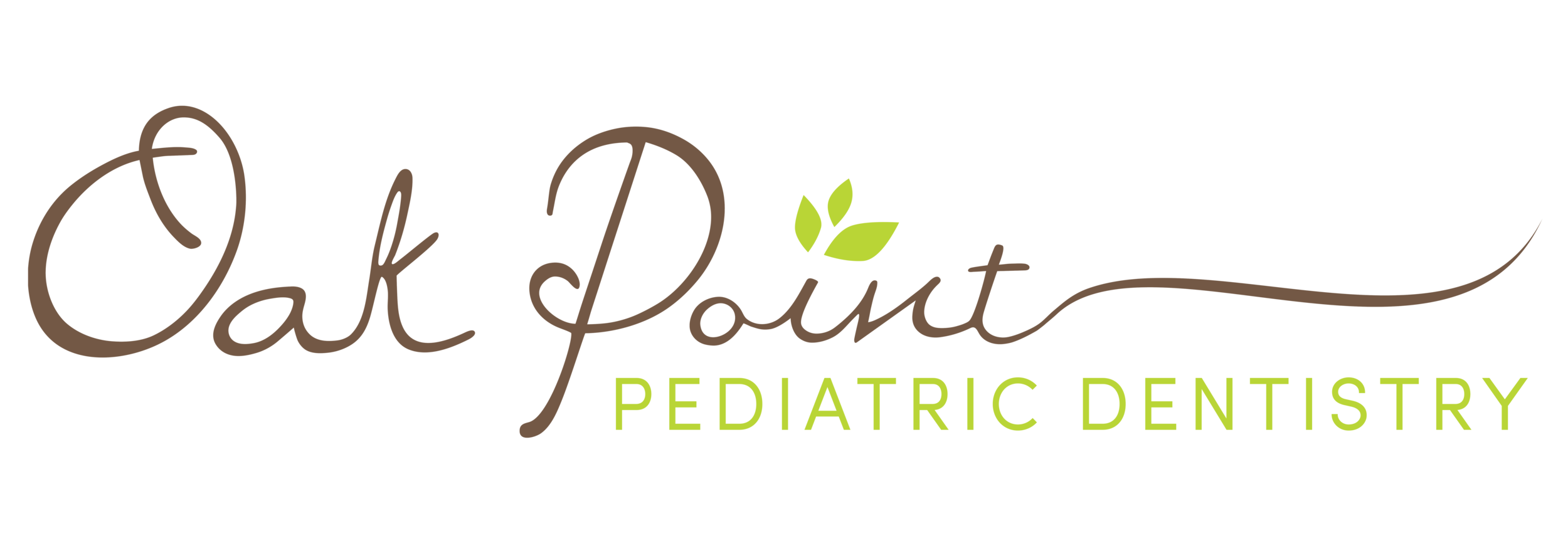sedation options and how to prepare
Nitrous oxide sedation
Also known as laughing gas, nitrous oxide is an effective option that helps many children relax during dental treatment. It's actually a blend of two gases, oxygen and nitrous oxide, which the patient breathes through a fitted mask placed over the nose. Recognized by the American Academy of Pediatric Dentistry as a safe and effective measure, it helps a child to relax during dental treatments while remaining fully conscious. Laughing gas is quickly eliminated from the body after a short period of breathing oxygen.
Prior to your appointment:
Please let us know about any changes to your child's health and/or medical condition.
If there is any respiratory condition that makes breathing through the nose difficult for your child, please let us know. It may limit the effectiveness of the nitrous oxide/oxygen.
Give your child little or no food in the two hours preceding the dental visit. (Occasionally nausea or vomiting may occur when a child has a full stomach.)
Let us know if your child is taking any medication on the day of the appointment, including prescribed, over-the-counter or herbal medications.
Conscious sedation
Conscious sedation is an option for apprehensive children, very young children, and children with special needs. It helps calm your child and reduce the anxiety or discomfort associated with dental treatments. Your child will not be unconscious, although they may be drowsy and might fall asleep.
A variety of different medications is used for conscious sedation. Based on your child's age, weight, overall health and dental treatment recommendations, Dr. Rachel will give the medication best suited for him. We will be happy to answer any questions you have about the specific medications we plan to give to your child.
Prior to your appointment:
Please notify us of any change in your child's health and/or medical condition. If your child develops a fever, ear infection or cold, please do not bring them in for treatment. Should your child become ill, contact us to see if it is necessary to postpone the appointment.
It's essential that you let us know about any drugs your child is taking (prescribed, over-the-counter, or herbal) and any drug reactions and/or changes in medical history.
Please dress your child in loose-fitting, comfortable clothing. Please also bring an extra change of clothing.
Please make sure that your child goes to the bathroom immediately upon arriving at the office.
Your child should not have solid food for at least six hours prior to the sedation appointment, and only clear liquids for up to four hours before the appointment. Please follow the specific guidelines given for your child. Eating or drinking prior to sedation is unsafe and will result in cancellation.
The child's parent or legal guardian must remain at the office during the complete procedure. No other children should be brought to the appointment.
Please watch your child closely while the medication is taking effect, holding them in your lap or keeping them close to you. Do not let them "run around."
Your child will become drowsy, though they may be excitable at first.
After the sedation appointment:
Please monitor your child closely, as they will be drowsy. Keep them away from areas of potential harm.
If your child wants to sleep, place them on their side with chin up. Check on your child frequently. Wake your child every hour and encourage them to sip on something, preferably clear liquids. This helps prevent dehydration and nausea. The first meal should be light and easily digestible.
Because we use a local anesthetic to numb your child's mouth during the procedure, they may have the tendency to bite or chew their lips, cheeks and/or tongue, and/or rub and scratch their face after treatment. Please observe your child carefully to prevent any injury to these areas.
Please call our office for any questions or concerns that you might have.
IV sedation
Intravenous, or IV, sedation, is a good option for apprehensive children, very young children, and children with special needs who would not perform well under conscious sedation or children with extensive needs who would otherwise require multiple conscious sedation appointments. A board-certified dental anesthesiologist administers and monitors the IV sedation in our office so that Dr. Rachel can perform the dental treatment.
Prior to your appointment:
Please notify us of any change in your child's health and/or medical condition. If your child has a fever or cold, please do not bring them in for treatment. Should your child become ill, contact us to see if it is necessary to postpone the appointment.
Notify us about any drugs that your child is taking (prescribed, over-the-counter, or herbal) and any drug reactions and/or changes in medical history.
Please dress your child in loose-fitting, comfortable clothing. Please also bring an extra change of clothes.
Please make sure your child goes to the bathroom immediately prior to arriving at the office.
Your child should not have milk or solid food after midnight prior to the scheduled procedure. He should have only clear liquids (water, apple juice, Gatorade) for up to six hours prior to the appointment. Specific eating and drinking guidelines will be given prior to the appointment.
The child's parent or legal guardian must remain at the office during the complete procedure.
After the IV sedation appointment:
Your child will be drowsy; please monitor them closely. Keep them away from areas of potential harm.
If your child wants to sleep, place them on their side with chin up. Check on your child frequently. Wake them every hour and encourage them to sip on something, preferably clear liquids. This helps prevent dehydration and nausea. The first meal should be light and easily digestible.
Please call our office for any questions or concerns that you might have.
